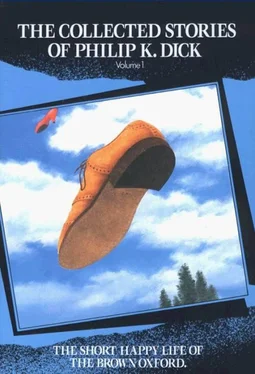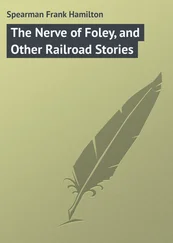I love this story, and I doubt if I write any better today than I did in 1951, when I wrote it; I just write longer. (1976)
THE LITTLE MOVEMENT Fantasy & Science Fiction, Nov 1952.
BEYOND LIES THE WUB Planet Stories, July 1952.
My first published story, in the most lurid of all pulp magazines on the stands at the time, Planet Stories. As I carried four copies into the record store where I worked, a customer gazed at me and them, with dismay, and said, “Phil, you read that kind of stuff?” I had to admit I not only read it, I wrote it.
THE GUN Planet Stories, Sept 1952.
THE SKULL If, Sept 1952.
THE DEFENDERS Galaxy, Jan 1953. [Parts of this story were adapted for the novel THE PENULTIMATE TRUTH.]
MR. SPACESHIP Imagination, Jan 1953.
PIPER IN THE WOODS Imagination, Feb 1953.
THE INFINITES Planet Stones, May 1953.
THE PRESERVING MACHINE Fantasy & Science Fiction, June 1953.
EXPENDABLE (“He Who Waits”) Fantasy & Science Fiction, July 1953.
I loved to write short fantasy stories in my early days—for Anthony Boucher—of which this is my favorite. I got the idea when a fly buzzed by my head one day and I imagined (paranoia indeed!) that it was laughing at me. (1976)
THE VARIABLE MAN Space Science Fiction (British), July 1953.
THE INDEFATIGABLE FROG Fantastic Story Magazine, July 1953.
THE CRYSTAL CRYPT Planet Stories, Jan 1954.
THE SHORT HAPPY LIFE OF THE BROWN OXFORD Fantasy & Science Fiction, Jan 1954.
THE BUILDER 7/23/52. Amazing, Dec 1953-Jan 1954.
MEDDLER 7/24/52. Future, Oct 1954.
Within the beautiful lurks the ugly; you can see in this rather crude story the germ of my whole theme that nothing is what it seems. This story should be read as a trial run on my part; I was just beginning to grasp that obvious form and latent form are not the same thing. As Heraclitus said in fragment 54: “Latent structure is master of obvious structure,” and out of this comes the later more sophisticated Platonic dualism between the phenomenal world and the real but invisible realm of forms lying behind it. I may be reading too much into this simple-minded early story, but at least I was beginning to see in a dim way what I later saw so clearly; in fragment 123, Heraclitus said, “The nature of things is in the habit of concealing itself,” and therein lies it all. (1978)
PAYCHECK 7/31/52. Imagination, June 1953.
How much is a key to a bus locker worth? One day it’s worth 25 cents, the next day thousands of dollars. In this story, I got to thinking that there are times in our lives when having a dime to make a phone call spells the difference between life and death. Keys, small change, maybe a theater ticket—how about a parking receipt for a Jaguar? All I had to do was link this idea up with time travel to see how the small and useless, under the wise eyes of a time traveler, might signify a great deal more. He would know when that dime might save your life. And, back in the past again, he might prefer that dime to any amount of money, no matter how large. (1976)
THE GREAT C 7/31/52. Cosmos Science Fiction and Fantasy, Sept 1953. [Parts of this story were adapted for the novel DEUS IRAE.]
OUT IN THE GARDEN 7/31/52. Fantasy Fiction, Aug 1953.
THE KING OF THE ELVES (“Shadrach Jones and the Elves”) 8/4/52. Beyond Fantasy Fiction, Sept 1953.
This story, of course, is fantasy, not sf. Originally it had a downbeat ending on it, but Horace Gold, the editor who bought it, carefully explained to me that prophecy always came true; if it didn’t ipso facto it wasn’t prophecy. I guess, then, there can be no such thing as a false prophet; “false prophet” is an oxymoron. (1978)
COLONY 8/11/52. Galaxy, June 1953.
The ultimate in paranoia is not when everyone is against you but when everything is against you. Instead of “My boss is plotting against me,” it would be “My boss’s phone is plotting against me.” Objects sometimes seem to possess a will of their own anyhow, to the normal mind; they don’t do what they’re supposed to do, they get in the way, they show an unnatural resistance to change. In this story I tried to figure out a situation which would rationally explain the dire plotting of objects against humans, without reference to any deranged state on the part of the humans. I guess you’d have to go to another planet. The ending on this story is the ultimate victory of a plotting object over innocent people. (1976)
PRIZE SHIP (“Globe From Ganymede”) 8/14/52. Thrilling Wonder Stories, Winter 1954.
NANNY 8/26/52. Startling Stories, Spring 1955.












